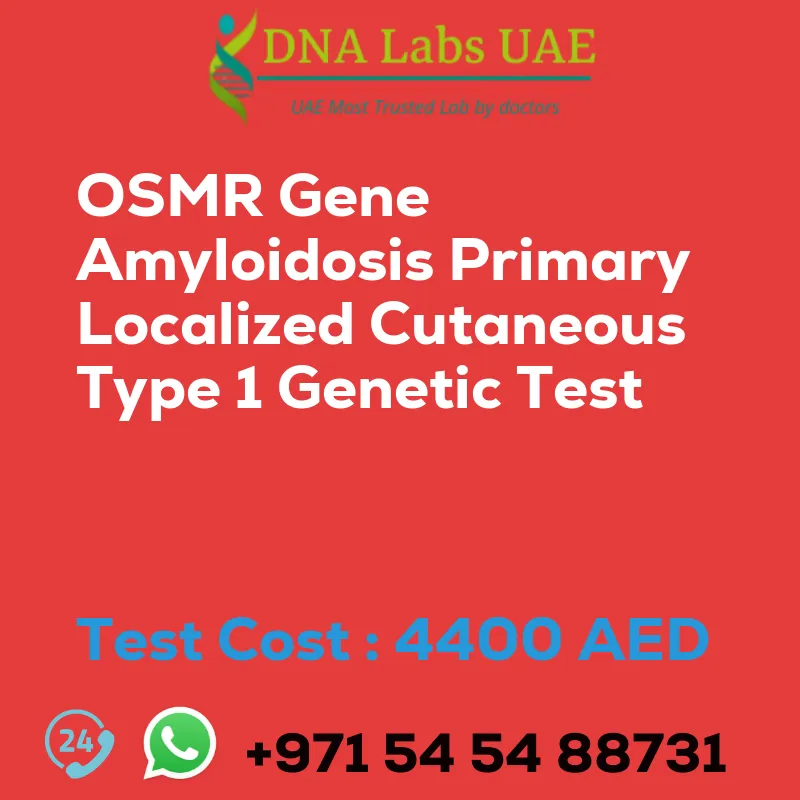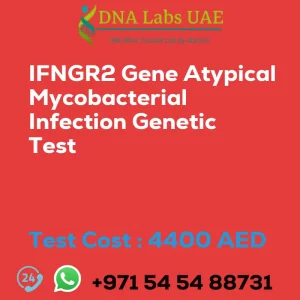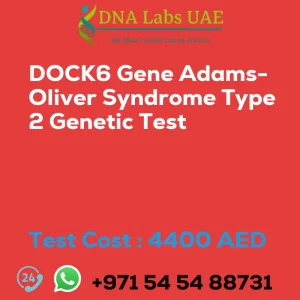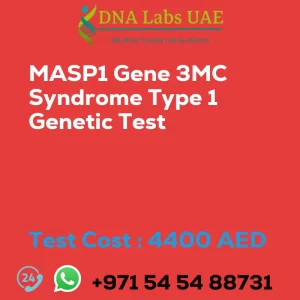OSMR Gene Amyloidosis primary localized cutaneous type 1 Genetic Test
Test Details
OSMR gene amyloidosis, primary localized cutaneous, type 1 is a rare genetic disorder characterized by the deposition of amyloid protein in the skin. This condition is caused by mutations in the OSMR gene.
Next-generation sequencing (NGS) genetic testing is a diagnostic tool used to identify genetic mutations associated with various diseases, including OSMR gene amyloidosis. NGS allows for the simultaneous analysis of multiple genes, making it a powerful tool for identifying genetic variants.
The NGS genetic test for OSMR gene amyloidosis, primary localized cutaneous, type 1 involves obtaining a DNA sample, usually through a blood sample, from the affected individual. The DNA is then sequenced using NGS technology to identify any mutations or genetic variants in the OSMR gene.
The results of the NGS genetic test can help confirm a diagnosis of OSMR gene amyloidosis and provide information about the specific genetic mutation present in the individual. This information can be used to guide treatment decisions and provide genetic counseling to affected individuals and their families.
It’s important to note that genetic testing for OSMR gene amyloidosis, primary localized cutaneous, type 1 may not be available in all healthcare settings. Genetic testing should be performed by a qualified healthcare professional who specializes in genetic disorders.
Test Name
OSMR Gene Amyloidosis primary localized cutaneous type 1 Genetic Test
Components
Price: 4400.0 AED
Sample Condition
Blood or Extracted DNA or One drop Blood on FTA Card
Report Delivery
3 to 4 Weeks
Method
NGS Technology
Test Type
Osteology Dermatology Immunology Disorders
Doctor
Dermatologist
Test Department
Genetics
Pre Test Information
Clinical History of Patient who is going for OSMR Gene Amyloidosis, primary localized cutaneous, type 1 NGS Genetic DNA Test. A Genetic Counselling session to draw a pedigree chart of family members affected with OSMR Gene Amyloidosis, primary localized cutaneous, type 1 NGS Genetic DNA Test gene OSMR
| Test Name | OSMR Gene Amyloidosis primary localized cutaneous type 1 Genetic Test |
|---|---|
| Components | |
| Price | 4400.0 AED |
| Sample Condition | Blood or Extracted DNA or One drop Blood on FTA Card |
| Report Delivery | 3 to 4 Weeks |
| Method | NGS Technology |
| Test type | Osteology Dermatology Immunology Disorders |
| Doctor | Dermatologist |
| Test Department: | Genetics |
| Pre Test Information | Clinical History of Patient who is going for OSMR Gene Amyloidosis, primary localized cutaneous, type 1 NGS Genetic DNA Test. A Genetic Counselling session to draw a pedigree chart of family members affected with OSMR Gene Amyloidosis, primary localized cutaneous, type 1 NGS Genetic DNA Test gene OSMR |
| Test Details |
OSMR gene amyloidosis, primary localized cutaneous, type 1 is a rare genetic disorder characterized by the deposition of amyloid protein in the skin. This condition is caused by mutations in the OSMR gene. Next-generation sequencing (NGS) genetic testing is a diagnostic tool used to identify genetic mutations associated with various diseases, including OSMR gene amyloidosis. NGS allows for the simultaneous analysis of multiple genes, making it a powerful tool for identifying genetic variants. The NGS genetic test for OSMR gene amyloidosis, primary localized cutaneous, type 1 involves obtaining a DNA sample, usually through a blood sample, from the affected individual. The DNA is then sequenced using NGS technology to identify any mutations or genetic variants in the OSMR gene. The results of the NGS genetic test can help confirm a diagnosis of OSMR gene amyloidosis and provide information about the specific genetic mutation present in the individual. This information can be used to guide treatment decisions and provide genetic counseling to affected individuals and their families. It’s important to note that genetic testing for OSMR gene amyloidosis, primary localized cutaneous, type 1 may not be available in all healthcare settings. Genetic testing should be performed by a qualified healthcare professional who specializes in genetic disorders. |








